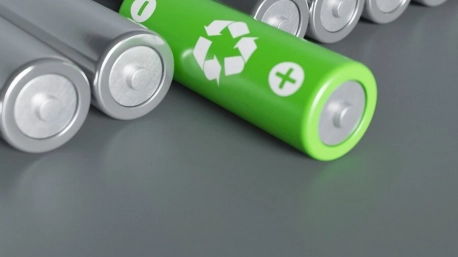The strategic landscape of renewable energy is rapidly evolving, and at the heart of this transformation is the increasing reliance on lithium-ion (Li-ion) batteries. These batteries are pivotal for accelerating the transition to a greener future, driving the surge in electric vehicle (EV) adoption, and enhancing energy storage solutions. However, the United States finds itself at a junction where its ambitions for a clean energy economy intersect with complex geopolitical considerations. As China emerges as the global powerhouse in Li-ion battery production and exportation, the US is compelled to reassess its energy strategies and supply chain dependencies to ensure the advancement toward decarbonization does not compromise national security or economic stability.
The Centrality of Li-ion Batteries in the Energy Transition
As the world marches towards a future less reliant on fossil fuels, Li-ion batteries play a crucial role in storing power generated from renewable energy sources and electrifying transportation. The strategic move by the United States to embrace this energy transition is driven by environmental concerns and a desire to mitigate the impacts of climate change. However, this shift also necessitates a hard look at the sources of Li-ion batteries, which are a linchpin of these green technologies. In 2023, nearly three-quarters of the Li-ion batteries that powered American efforts were manufactured in China, revealing a heavy reliance on foreign imports and highlighting the vulnerability of the nation’s energy strategy. It is imperative that as the US ramps up its green transition, it also seeks to foster and secure an independent and reliable supply chain for these essential components.
National Security Implications of Battery Dependency
The dependence on Li-ion batteries extends beyond commercial use into national security realms. The proliferation of electric and unmanned systems within military applications has made battery technology a critical element of modern defense platforms. For instance, batteries play a significant role in the efficiency of submarines and are essential in the development of a new generation of aerial drones. With China’s stronghold on the Li-ion battery market, there are growing concerns about the implications of this reliance for US military readiness and technological advantage, particularly as the competition for military innovation intensifies. Therefore, assessing the challenges and creating a robust strategy to diminish the security risks associated with battery dependency is of paramount importance.
Mitigating Risks Through Strategic Measures
To counter the risks borne from China’s dominance in the battery sector, the US is exploring a multi-pronged approach. Spot checks on imports of Li-ion batteries and limiting their use in sensitive applications represent immediate but temporary measures that the United States can take to safeguard against the vulnerabilities associated with Chinese-sourced batteries. These actions are steps toward a broader strategic goal, but they alone cannot dismantle the significant risk looming over the nation’s energy and defense sectors. A more systemic shift is needed to reduce dependence on external sources for critical technologies that serve both civilian and military purposes.
Building a ‘Friend-shored’ Battery Industry
The pursuit of a secure and independent Li-ion battery supply chain is central to the strategic reorientation of the US. This entails not just boosting domestic production but also investing in collaborative ventures with trusted allies to establish a ‘friend-shored’ network of battery manufacturing. A whopping $34 billion has been poured into the US battery industry to lay the groundwork for this transformation. These investments will not only help de-risk the US economy from geopolitically sensitive supply chains but also catalyze advancements in sustainable battery technology, supply chain diversification, and job creation. Forging a resilient and competitive battery industry with allied nations will enhance the strategic autonomy and energy security of the United States and its partners.
Strengthening Partnerships and Domestic Infrastructure
The U.S. stands at a critical point as it aims for a cleaner energy paradigm, with lithium-ion batteries being the linchpin for electric vehicles and energy storage. This shift is essential for sustainable progression, but relies heavily on a complex supply chain, predominantly led by China—a country that now dominates the Li-ion battery market. This market control presents the U.S. with both an opportunity and a conundrum; while these batteries are crucial for an eco-friendly shift, reliance on foreign production raises concerns about national security and economic sovereignty. As such, the U.S. must strategically navigate this landscape, balancing its environmental goals with geopolitical realities to prevent undermining its national interests while pursuing its decarbonization aspirations.









